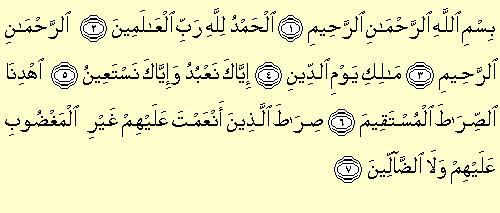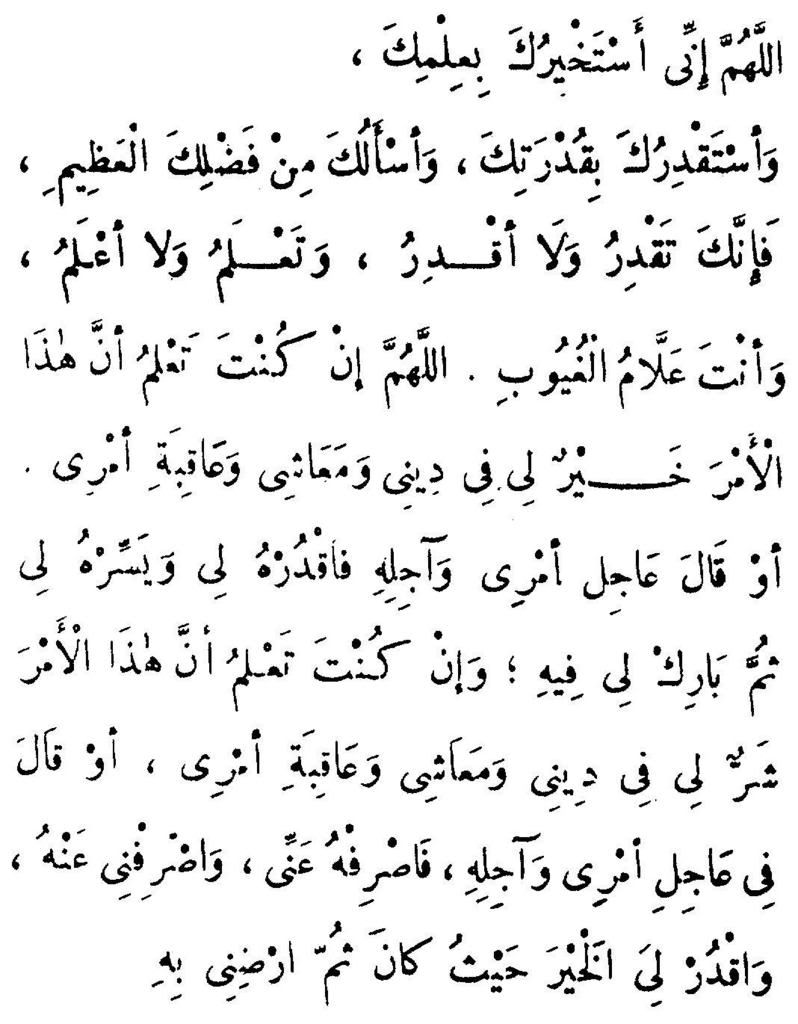Woodrow
May Allah have mercy on him رحمة الله عليه
- Messages
- 17,217
- Reaction score
- 4,224
- Gender
- Male
- Religion
- Islam
Thank you for your response, and for the moderation.
Your Welcome
Well, a petition, by definition, is a request, or a plea. If it is God's
word, why would he reveal a petition, without expressly indicating
that it be read as such. All the other prayers in the Koran, are
expressly prefixed with either Say..., or Read..., but not this one.
Quite an interesting perspective. I doubt if many if any of us see it as that. Perhaps you are only familiar with the common English translation.
Surah 1
1: 1. In the name of ALLAH, the Gracious, the Merciful.
1: 2. All praise is due to ALLAH alone, Lord of all the worlds.
1: 3. The Gracious, the Merciful.
1: 4. Master of the Day of Judgment.
1: 5. THEE alone do we worship and THEE alone do we implore for help.
1: 6. Guide us in the straight path,
1: 7. The path of those on whom THOU hast bestowed THY favours, those who have not incurred THY displeasure and those who have not gone astray.
That is possibly the closest it can come in English. Looking at it from your perspective, I think maybe you came to that conclusion from the last 3 Ayyats.
1: 5. THEE alone do we worship and THEE alone do we implore for help.
1: 6. Guide us in the straight path,
1: 7. The path of those on whom THOU hast bestowed THY favours, those who have not incurred THY displeasure and those who have not gone astray
Now it is true that those are things we are to ask Allah(swt) for. But they are actually written in terms of a commandment directing us as to what we should ask for.
Let us look at the Surah in Arabic;

The ayyat that seem to to be causing you trouble are these:



They do not say:
1: 5. THEE alone do we worship and THEE alone do we implore for help.
1: 6. Guide us in the straight path,
1: 7. The path of those on whom THOU hast bestowed THY favours, those who have not incurred THY displeasure and those who have not gone astray.
They say:
'Iyyaaka na'-budu wa 'iyyaaka nasta-'iin
'Ihdinas-Siraatal-Mustaqiim
Siraatal-laziina 'an-'amta 'alay him
Gayril-magzuubi 'alay him wa laz-zaaalliin.
This is not in the tone of a petition, it is more like direct commands as to what we are to do. It is not possible to get the full connotation in English.
The best explanation for what it means would be from the tasfir of a scholar who can explain it in English. Since i am not a scholar, I would not attempt to claim my words are tasfir.
And since we're on the topic, why are the other prayers, although
prefixed as such, read along with the prefixes? We aren't God,
are we? So, who are we commanding, when we say them?
We do precede the reading of the Qur'an or any part with the words:
Bismillahir Rahmanir Raheem
"In the name of God(swt) the Beneficent, the Most Merciful"
In fact we say that prior to starting any conscious act or thought.
I am lost as to what you mean here. the Qur'an is not a book of prayers as would be considered prayer in the English concept. It is a series of revelations as to what Allah(swt) has done and what is expected of us. Surah one tells us what we are to do, the rest of the Qur'an is the instruction manual on the hows and whys.
This is a prayer:

Translation:
Oh Allah! I seek Your guidance by virtue of Your knowledge, and I seek ability by virtue of Your power, and I ask You of Your great bounty. You have power; I have none. And You know; I know not. You are the Knower of hidden things.
Oh Allah! If in Your knowledge, (this matter*) is good for my religion, my livelihood and my affairs, immediate and in the future, then ordain it for me, make it easy for me, and bless it for me. And if in Your knowledge, (this matter*) is bad for my religion, my livelihood and my affairs, immediate and in the future, then turn it away from me, and turn me away from it. And ordain for me the good wherever it may be, and make me content with it.
Transliteration:
Allahumma inni astakheeroka bi ilmik. Wa'astaq-diroka biqodratik. Wa'as'aloka min fadlikal-azeem. Fa'innaka taqdiru wala aqdir. Wata lamo wala-a lam. Wa'anta-allamul ghuyoob.
Allahumma in kunta ta lamu anna (hathal-amra*) khayul-lee fi deenee wama ashi wa ajila amri wa'ajilah, faqdorho lee, wayassirho lee, thomma-barik lee fih. Wa'in konta ta lamo anna (hathal-amra*) sharrul-lee fi deenee. Wama ashi. Wa ajila amri. Wa'ajilaho. Fasrifho annee. Wasrifnee anh. Waqdur leyal-khayr haytho kan. Thomma ardini bih.
* When making the du'a, the actual matter or decision should be mentioned instead of the words "hathal-amra" ("this matter").
We learn how to pray by what the early scholars have directed us in the Sunnah and the Hadith.
